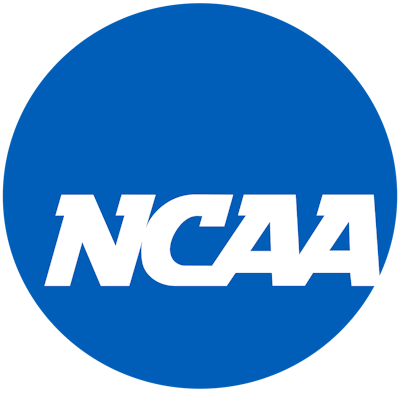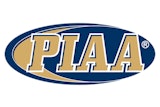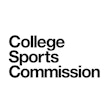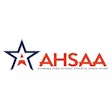
Imagine playing a sport you love, giving it your all in every game. In addition, you're balancing your academic studies as you pressure yourself to succeed in the classroom and on the field. If that weren't enough pressure, you also have strangers harassing you via social media, spouting abusive threats because they've lost money based on your performance or that of your team.
It's a mental health nightmare.
Harassment related to sports betting can cause serious harm to student-athlete mental health and well-being. The NCAA is doing more than ever to address the rise of sports betting — including monitoring and flagging abusive social media content, providing e-learning content, educating on campuses and even lobbying states to change sports betting laws. The NCAA believes bets placed on individual college athletes' performances, known as prop bets, should be eliminated. These types of bets target the individual for harassment and are more easily manipulated, threatening competition integrity. That's why the NCAA is advocating for elimination of player-specific prop bets in collegiate competitions. The NCAA's efforts are paying off.
For example, in Ohio, student-athletes, campus leaders, athletics administrators and the national office collaborated with gaming regulators to remove prop bets from their books across the state. Since Ohio's action, Vermont, Maryland, Louisiana and others have moved to prohibit prop bets. The NCAA is also urging states to implement antiharassment measures, including implementation of a reporting system to allow states to place certain bettors who harass student-athletes on a list that excludes them from being able to place bets. West Virginia has taken action in this space, creating a framework that other states are interested in modeling. Student-athletes are speaking out about this issue and working to create awareness about the detrimental impacts of harassment. Their voices are critical to this effort.
Just 12 days after North Carolina legalized sports betting, including player prop bets on college competitions, North Carolina men's basketball student-athlete Armando Bacot publicly reported receiving betting-related abuse via private social media direct messages after his performance.
"It's terrible. Even at the last game, I guess I didn't get enough rebounds or something. I thought I played pretty good last game, but I looked at my DMs, and I got like over 100 messages from people telling me I sucked and stuff like that because I didn't get enough rebounds," Bacot said.
Since these remarks and NCAA outreach, North Carolina lawmakers have filed bills to ban college player prop bets. State legislators in New Jersey have also filed a bill, which has bipartisan support, that would ban college prop bets.
Earlier this year, Cody Shimp and Morgan Wynne, chair and vice chair of the Division I Student-Athlete Advisory Committee, joined NCAA President Charlie Baker in writing a memo to college athletics leaders about the severity of online harassment. They urged campus stakeholders to use their voice to effect change and increase safeguards to protect student-athletes from abuse.
"The sports betting landscape in America is rapidly evolving and requires careful consideration of all involved stakeholders," Shimp, Wynne and Baker said in the memo. "The NCAA will continue to do its part to lead in this space to identify practical solutions to guard against the dangers of sports betting, such as harassment. Your role is critical in driving change locally. Together, we can help our student-athletes compete in a safer college sports atmosphere."
The NCAA has launched several initiatives to address harassment, including engaging Signify Group. Its Threat Matrix artificial intelligence service supports the Association in studying and responding to online abuse and threats directed at NCAA championship participants, including student-athletes, coaches, officials and committee members for the 2023-24 championship season. This unique initiative is intended to further promote the mental health and well-being of the college sports community through data collection and analytics.
While the championship season is still underway, some trends the data already shows include:
- One in 3 high-profile athletes receive abusive messages from someone with a betting interest.
- Higher-profile events with sports betting markets attract increased volumes of abuse or threats.
- Ninety percent of harassment is generated online or through social media.
- In sports with high volumes of betting, 15%-25% of all abuse surrounding that competition is betting related.
- During March Madness, Signify covered nearly 1,000 Division I men's and women's basketball student-athletes, 64 teams, over 280 coaches and 120 NCAA match officials.
- Across the Division I Men's and Women's Basketball Championships, over 54,000 posts/comments were flagged by Signify's AI for potential abuse or threats and reviewed by human in-house analysts.
- Of those 54,000, 4,000 were confirmed as abusive or threatening and reported to the relevant social media platforms, with some elevated to law enforcement.
- More than 540 abusive betting-related messages were directed at men's and women's basketball student-athletes, including death threats.
- Women's basketball student-athletes received approximately three times more threats than men's basketball student-athletes.
- Student-athletes are not the only group experiencing these threats and abuse. Game officials, administrators and other athletics employees have been harassed related to their respective involvement in competitions.
Insights from the initial set of championships covered by the service will be released later and will be used as a benchmark for monitoring efforts at future NCAA championships. Furthermore, Signify's unique DM risk management service will also be offered to student-athletes and officials to protect them from the type of abuse experienced by Bacot.
Additionally, the NCAA has expanded programming through e-learning content and with EPIC Global Solutions to educate student-athletes not only about how to handle abusive threats, but more broadly on the risks of sports betting and problem gambling. The program won Player Protection Initiative of the Year at the 2024 SBC Summit, a conference and trade show focused on the online betting and gambling industry.
To date, more than 55,000 student-athletes have been educated through EPIC Global Solutions lived-experience sessions, leaving a lasting impact:
"This seminar really changed my perspective on gambling and the severity of it. … It was very educational and informative on the risks, factors and harm betting can do," said one student-athlete in an anonymous survey following an EPIC session. "Really caught my attention on how this can really be a problem. I've seen people with betting addiction but just never knew how to help."
Increasing education and growing awareness of the complexities of sports betting fueled the NCAA's Draw the Line campaign, launched at the start of March Madness.
The campaign prioritizes student-athlete education on the effects of sports betting while also addressing responsible gambling for all who consume and participate in college sports.
While the campaign is focused on social media promotion to reach student-athletes where they are, it also includes a membership toolkit for member schools and conferences to access resources that extend the campaign for on-campus education.
All these initiatives have been developed and implemented to help protect student-athlete well-being and mental health to safeguard the overall student-athlete experience in a rapidly evolving landscape.
If you are a student-athlete or campus administrator and want to learn more about the resources the NCAA is making available, click here. If you are a student-athlete, you live in a state that permits prop bets and you want to help get these bets pulled from the market, please email [email protected].




































